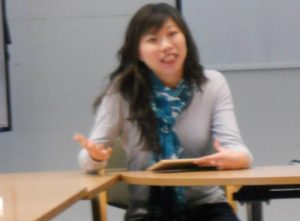
Pauline Hope Cheong is Associate Professor at the Hugh Downs School of Human Communication, Arizona State University. Her interests are in the socio-cultural implications of communication technologies, particularly on the mediation of leadership and influence, and the distribution of wealth in society. This includes thinking about authority and power, civic participation and community building, with a multidisciplinary, international and multi-media perspective. Her research foci have covered religious communities, extremist groups, youths, immigrants, cultural elites and those marginalized in today's information society.
She has published more than 50 papers in leading communication and interdisciplinary international peer-reviewed journals, including New Media and Society, The Information Society, Information, Communication and Society, Journal of International and Intercultural Communication, Journal of Computer-Mediated Communication, Journal of Communication and the Journal of Media and Religion. She currently serves on the editorial board of the Journal of Communication.
Pauline Hope Cheong is the lead editor of a international volume on New Media and Intercultural Communication: Identity, Community and Politics. She is also the lead editor of an anthology on Digital Religion, Social Media and Culture: Perspectives, Practices and Futures, and co-author of a book on Narrative Landmines: Rumors, islamist extremism and the struggle for strategic influence.
You can find out more on her website, http://paulinehopecheong.com/
"Given its rich and variable nature, authority itself is challenging to define and study... Studies focused on religious authority online have been few, compared to studies centered on religious community and identity. Despite interest and acknowledgement of the concept, there is a lack of definitional clarity over authority online, and no comprehensive theory of religious authority..."
This work is licensed under a Creative Commons Attribution- NonCommercial- NoDerivs 3.0 Unported License.
The views expressed in podcasts, features and responses are the views of the individual contributors, and do not necessarily reflect the views of The Religious Studies Project or our sponsors. The Religious Studies Project is produced by the Religious Studies Project Association (SCIO), a Scottish Charitable Incorporated Organisation (charity number SC047750).